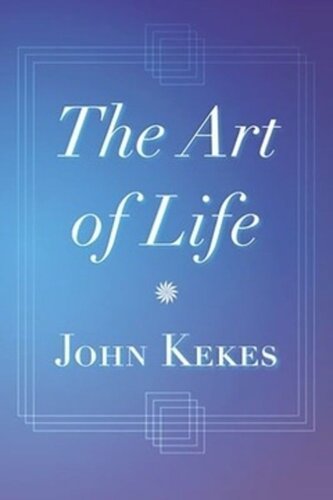

Most ebook files are in PDF format, so you can easily read them using various software such as Foxit Reader or directly on the Google Chrome browser.
Some ebook files are released by publishers in other formats such as .awz, .mobi, .epub, .fb2, etc. You may need to install specific software to read these formats on mobile/PC, such as Calibre.
Please read the tutorial at this link: https://ebookbell.com/faq
We offer FREE conversion to the popular formats you request; however, this may take some time. Therefore, right after payment, please email us, and we will try to provide the service as quickly as possible.
For some exceptional file formats or broken links (if any), please refrain from opening any disputes. Instead, email us first, and we will try to assist within a maximum of 6 hours.
EbookBell Team

4.3
38 reviews"That the art of life is creative, imaginative, and individual does not mean... that it cannot be taught and learned or that individuals cannot improve their mastery of it. Teaching it proceeds by way of exemplary lives, and learning it consists in coming to appreciate what makes some lives exemplary.... That imitation here is impossible does not mean one cannot learn from examples. The question is, How can that be done reasonably; how can decisions about how one should live escape being arbitrary, if they are left to individual creativity and imagination and are not governed by rules that apply to everyone living in a particular context?"—from The Art of LifeThe art of life, according to John Kekes, consists in living a life of personal and moral excellence. This art requires continuous creative effort, drawing on one's character, circumstances, experiences, and ideals. Since these conditions vary with times and places, Kekes says, there can be no single blueprint for the achievement of excellence. We must do it ourselves—but we can learn from those who have lived exemplary lives.Reflecting on lives of integrity and honor, Kekes formulates what we can learn from them and what we can do to adapt the ideals they represent to our personal circumstances. Avoiding both the abstractness that characterizes much moral thought and the relativism that recognizes no rational or moral limits, Kekes shows how serious philosophical thinking can be readable and helpful to those who struggle with the perennial problems of human existence.